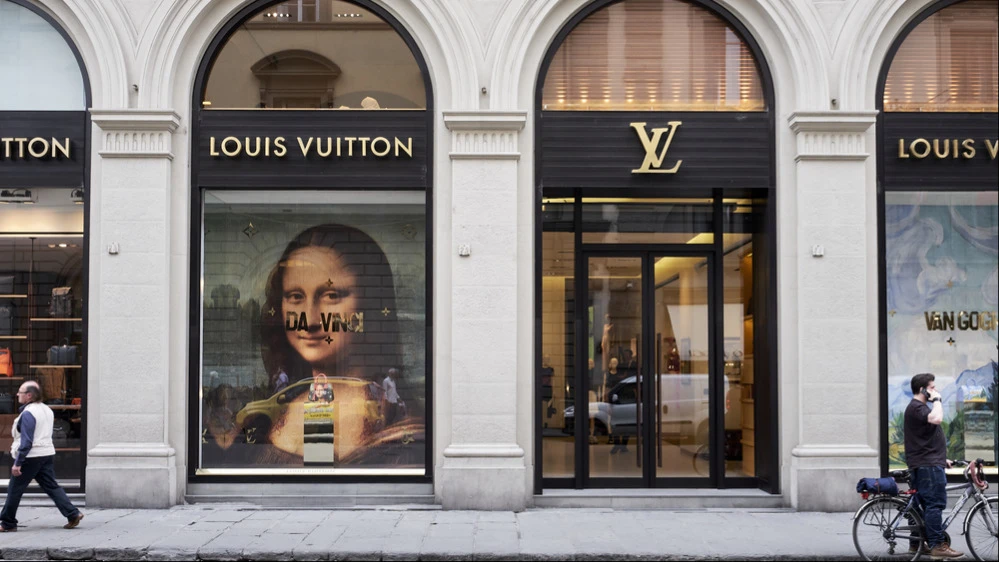Louis Vuitton owner's sales are falling. Why is this a signal to the entire luxury sector?
The slowdown in the apparel and leather goods segment was largely due to a drop in sales in Japan after strong growth last year

LVMH Group's organic sales fell 4% in the second quarter, again falling short of analysts' expectations. The brand was hit by economic uncertainty in the US and weaker demand in Asia. LVMH's results are seen as an indicator of the health of the entire luxury industry, but investors will find no signs of demand recovering from the downturn in the new report, Barron's wrote.
Details
LVMH's core fashion and leather goods business showed a sharp drop in quarterly sales, underscoring continued weak demand for luxury goods after a period of relentless price rises and increased economic uncertainty, wrote Financial Times. Organic sales of the division, which includes brands such as Dior and Louis Vuitton, fell 9% to €9 billion in the second quarter. Wall Street had expected a 6% decline, writes Reuters. The year-on-year drop was stronger than analysts had forecast and was the sharpest decline of any LVMH unit.
Overall, LVMH group organic sales fell 4% to 19.5 billion euros ($22.95 billion) in the second quarter. Analysts had expected a 3% decline, according to Visible Alpha. LVMH sales fell short of expectations for the second consecutive quarter, noted Barron's.
At the same time on operating profit LVMH in the first half of the year exceeded expectations: it decreased by 15% to 9.01 billion euros, while analysts predicted a decline of 16.7%, notes the FT.
Why it's a signal for the entire market
LVMH is the world's largest luxury goods conglomerate and is often seen as an indicator of the health of the industry, Barron's writes. Investors closely watch its quarterly reports looking for signs that demand for luxury goods is recovering from a prolonged slump. However, a report released July 24 suggests that's not happening.
The decline in revenue in the apparel segment points to weakening demand from its core audience of luxury buyers, the publication said. LVMH also noted that in the first half of last year its sales were supported by strong growth in tourist spending, especially in Japan - but that this year it has weakened. LVMH Chief Financial Officer Cecile Cabanis said at a conference call with investors that market conditions remain challenging;
The results of the world's largest luxury conglomerate signal effective "cost control in a challenging market environment", said Bernstein analyst Luca Solka, whose noteis cited by the FT. "LVMH is facing a number of challenges. The focus will now be on the anti-crisis measures and how they will affect the business in the second half of the year," he added.
The decline in revenue at LVMH's fashion division is raising doubts about the growth rate of Dior and Louis Vuitton, the two biggest brands in the group, writes the FT. "Dior's revival is by no means a walk in the park, while Louis Vuitton, the world's biggest luxury brand, which accounts for more than half the group's profits, appears to be at a crossroads," the FT quotes a note from HSBC analysts.
Earlier this year, LVMH lost the title of France's most expensive public company to its rival Hermès.
What LVMH is doing
Cabanis noted that Louis Vuitton performed above the division average in the first half of the year, while Dior "lagged a bit behind". LVMH expects that the arrival of Jonathan Anderson as creative director of Dior will give the brand a new impetus. However, improvements in financial performance will not be visible until 2026, Cabanis warned.
Similarly, she said, the changes being implemented by the new team at Moët Hennessy (wines and spirits) will not bring tangible benefits to shareholders until next year.
The brand expects to reduce the impact of duties in the U.S. Louis Vuitton will open a new factory in Texas by 2027, LVMH Chairman and CEO Bernard Arnault told The Wall Street Journal in an interview Thursday. It will be the brand's fourth venture in America.
This article was AI-translated and verified by a human editor
